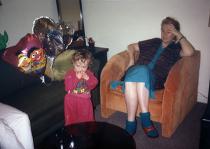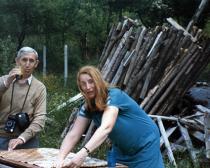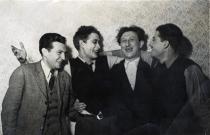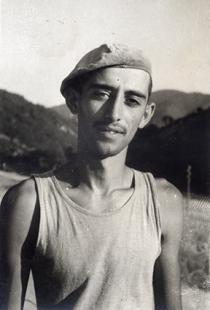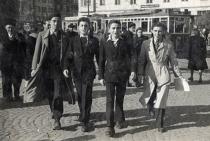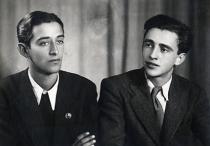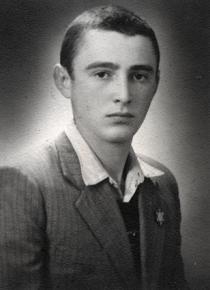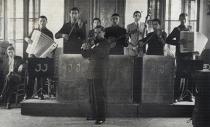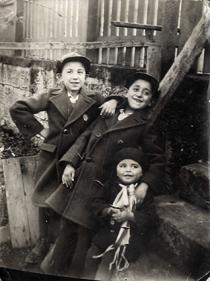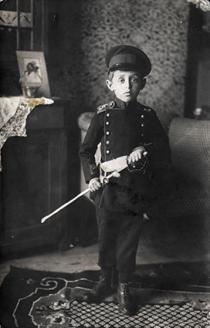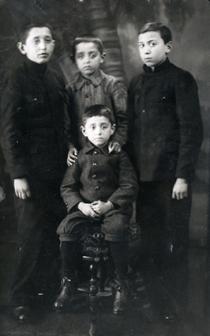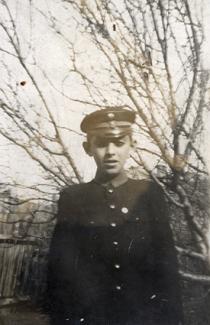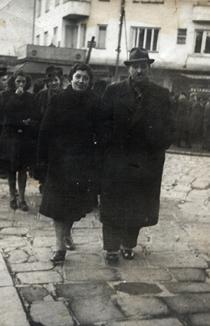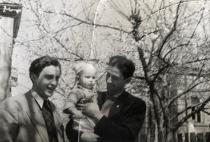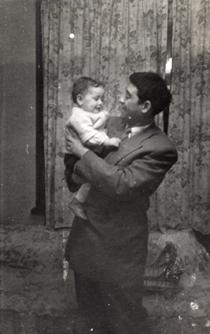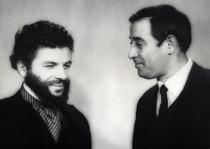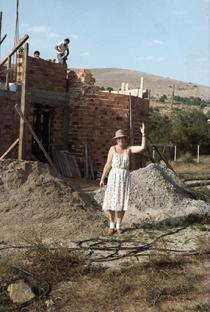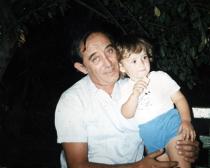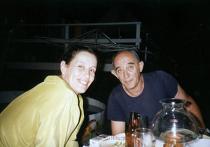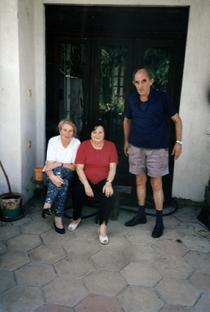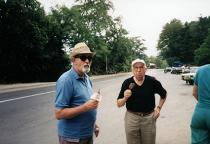My father Moisey (Buko) Mayer Pinkas together with his sister Klara in the capital Sofia, when she came to see their brother Albert, who was traveling by train from Belgrade to Iran. The picture was taken in December 1941.
My father had a sister and two brothers. Chelebi Pinkas, who lived in Bucharest and Constanta, was younger then my father who was the eldest. Chelebi married in Silistra, before the town was annexed by Romania [after WWI], and had two daughters. He remained a Bulgarian citizen even after the town became part of Romania. He moved to Bucharest and then to Constanta, where he opened a clothes shop. In 1940, when Dobrudzha was regained by Bulgaria, Romanian authorities expelled him from the country because of his Bulgarian citizenship. So he, together with other people like him, were waiting at the border with Bulgaria, because Bulgaria didn't want to let them in. My mother then went to Varna to meet with certain generals, even the regional governor and she managed to get permission for these people to be let into Ruse. Their luggage had arrived in the town long ago before them. Until 9th September 1944 they lived in Ruse, after which they went back to Romania. Later, my uncle suffered from ulcer and he had to undergo a surgery, which caused his death.
My father's other brother Albert Pinkas (Avram), who was the youngest, studied to become a rabbi in Germany. There he started singing in operettas and made records of evergreens translated into Bulgarian for the 'Columbia' records studio. That happened in the 1930s. When he came back to Bulgaria he found a business partner (because he didn't have the money - he was poor) and they opened a factory for production of record disks. All the records were made in Germany. Even during the Hitler's ruling he used to take whole orchestras to Germany to make records. In Bulgaria, the records made by 'Simonavia' company were somewhat dull. In 1939-1940 he went to Bucharest and left the company to his partner here, who robbed him. From Bucharest he moved to Belgrade where he opened another factory. When the German troops entered Serbia he was given 48 hours to leave the country. He had Iranian passport and was stopped at the border, because Bulgarians didn't give him a transit visa. However he had a friend in Sofia - she was a designer and used to sew designer's clothes for the ministers' wives - she had a nice apartment in Sofia. So, when he called her she managed to take the Interior Minister Gabrovsky out of a session of the Council of Ministers and got a transit visa for Albert. He was let in, but at the station he was given a place with the transit passengers so he couldn't get out of the departure lounge. Aunt Klara (my father's sister) was then living in Sofia and went to see him, and she called my father. He immediately took the train in the evening, and got in Sofia in the morning where the two brothers saw each other for the last time. Albert went to Persia and after that - to Palestine. But he was captured by Englishmen and sent to a camp. After that he lived for a while in Israel, but he was not satisfied with the fact that he was not given the permission to export and import goods. Later he used to come to Bulgaria often - he had many friends here. Then he moved to Italy and spent his last years in Milan - he traveled around Europe as a trade intermediary. He used to offer everything - from diamond powder for polishing to women's stockings.

